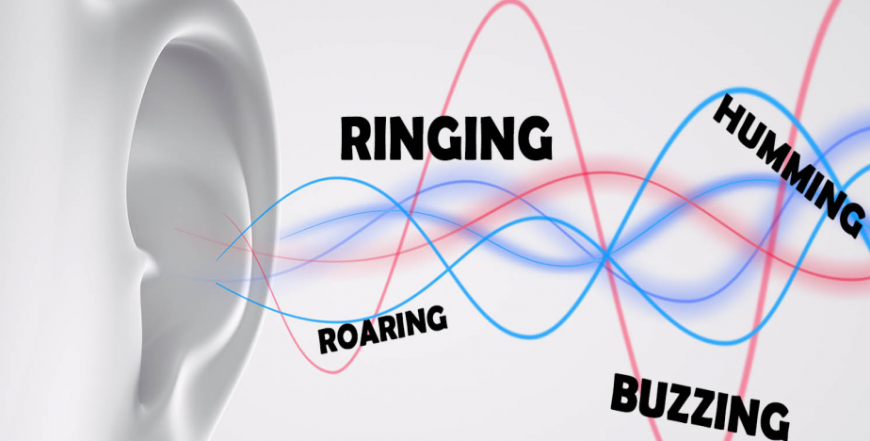
Tinnitus
WHO HAS TINNITUS?
Tinnitus like pain, is subjective. The severity of tinnitus and how it affects one’s life is largely influenced by the individual’s reaction to the tinnitus. Many tinnitus sufferers report interference with sleep, concentration or attention to detail. Some are depressed and anxious and may report additional problems at work or at home. Many people with tinnitus also suffer from hyperacusis, an inability to tolerate even moderate-level sounds. Most patients report a relationship between tinnitus and stress. The onset of tinnitus often coincides with a change (emotional, physical, or social) in one’s life situation. Tinnitus might have both a physiological and psychological component.
THERE ARE MANY CAUSES.
SOME OF THE POTENTIAL CAUSES ARE:
- Conditions in the outer ear such as ear wax (cerumen).
- Conditions in the middle ear such as vascular abnormalities, infection, otosclerosis, muscle spasms, Eustachian tube dysfunction, and benign tumors.
- Conditions in the inner ear such as damage due to noise exposure, presbycusis (hearing loss from aging), labyrinthitis (inner ear infection), and Meniere’s disease (involving hearing loss and dizziness).
- Temporary effects of high dosages of medications such as anti-inflammatories (including aspirin, ibuprofen), quinine, certain sedatives and antidepressants; possible permanent effects from certain antibiotics and chemotherapeutic agents.
- Vascular disorders, acoustic tumors, head or neck aneurisms, hormonal changes, and systemic disorders such as high or low blood pressure, anemia, diabetes, thyroid dysfunction, and glucose metabolism abnormalities.
- Trauma to the head or neck, cervical (neck) problems, and temporomandibular (jaw joint) misalignment.
What Can You Do To Minimize Tinnitus?
- Avoid loud noise & wear proper ear protection in high noise levels.
- Control stress
- Avoid fatigue
- Maintain good nutrition
- Reduce stimulants such as caffeine, alcohol etc.
- Educate yourself about tinnitus
- Exercise
What Treatments Are Available For The Tinnitus Patient?
Tinnitus may be symptom of a treatable disease, it is important to try to identify and resolve
a cause before deciding on the management approach. A variety of tinnitus management
procedures are available.
Counseling
A trained professional will attempt to help the patient to deal with the stress, distress, and
distraction associated with tinnitus.
Hearing Aids
Majority of tinnitus sufferers also have hearing loss. Amplification is among the most
effective tools for providing relief from tinnitus. Hearing aids may help by amplifying speech
and background sounds that reduce the loudness of the tinnitus or even mask it.
Masking
The use of an externally produced sound to cover up, inhibit, or alter production of tinnitus can offer relief for some tinnitus sufferers. There are several methods of providing masking, including tinnitus maskers, tinnitus instruments, tabletop bedside sound generators, or hearing aids. Recordings that provide various Sounds (like sound of fan, ocean sound, rain sounds, stream sounds) & Music also may help mask tinnitus. These can be used with either speakers or headphones.
Medications
Some antidepressants and anti-anxiety medications address the problems associated with tinnitus and have proven helpful for certain patients. Always consult your physician concerning any drug or combination of medications you may be considering. Tinnitus Retraining Therapy (TRT) TRT is a form of habituation therapy designed to help people who suffer from tinnitus. TRT uses counseling to explain to the patient how a combination of tinnitus retraining and sound enrichment can end their negative reaction to the tinnitus sound, and then reduce their perception of it.
Laser Therapy:
In some cases, green laser therapy demonstrated benefit in reducing tinnitus.
Stress Management: Relaxation
Support: Emotional support to patient
What Should You Do If You Have Tinnitus?
Consult an audiologist to help evaluate tinnitus and develop your management program.
Consult a physician, preferably ENT (ear, nose, and throat specialist), to determine if your tinnitus is related to a condition that requires medical or surgical treatment.
Educate yourself about the nature of tinnitus and methods for managing and relieving your associated problems (anxiety, depression, sleep deprivation, etc.).
